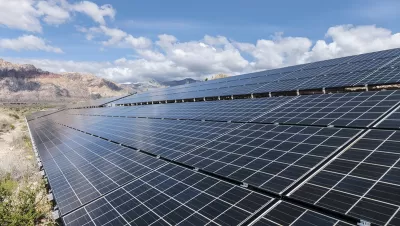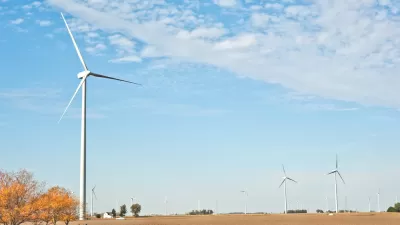Delaware County plans to amend its solar zoning ordinance and lift a moratorium on the construction of new solar farms that was implemented after local opposition stalled the project.

A moratorium on solar farms in Indiana's Delaware County is set to expire on February 22, despite protests from local farmers and residents who oppose a planned solar project, known as Meadow Forge, in Washington Township. As David Penticuff reports for the Muncie Star Press, the date falls after the Delaware Muncie Plan Commission will meet to approve changes to the solar zoning ordinance which will eliminate the requirement for a variance for solar panels. Among other changes, the commissioners want to increase setbacks to 100 feet, although some residents are asking for larger setbacks due to fire concerns.
While supporters of the project say it will bring revenue and a clean source of energy to the community, Penticuff reports elsewhere that opponents worry about the loss of farmland and the impacts of solar arrays on local ecosystems. The county expects to receive around $155 million in direct investment over the life of the project, investment badly needed in an area formerly dependent on now-defunct coal plants.
Around the country, solar farms are facing increasing opposition from neighboring property owners as the industry scales up to meet growing demand for renewable energy, expressing concerns about effects on their environment and land values.
FULL STORY: Moratorium on building solar farms in Delaware County to expire Feb. 22

Planetizen Federal Action Tracker
A weekly monitor of how Trump’s orders and actions are impacting planners and planning in America.

Maui's Vacation Rental Debate Turns Ugly
Verbal attacks, misinformation campaigns and fistfights plague a high-stakes debate to convert thousands of vacation rentals into long-term housing.

Restaurant Patios Were a Pandemic Win — Why Were They so Hard to Keep?
Social distancing requirements and changes in travel patterns prompted cities to pilot new uses for street and sidewalk space. Then it got complicated.

In California Battle of Housing vs. Environment, Housing Just Won
A new state law significantly limits the power of CEQA, an environmental review law that served as a powerful tool for blocking new development.

Boulder Eliminates Parking Minimums Citywide
Officials estimate the cost of building a single underground parking space at up to $100,000.

Orange County, Florida Adopts Largest US “Sprawl Repair” Code
The ‘Orange Code’ seeks to rectify decades of sprawl-inducing, car-oriented development.
Urban Design for Planners 1: Software Tools
This six-course series explores essential urban design concepts using open source software and equips planners with the tools they need to participate fully in the urban design process.
Planning for Universal Design
Learn the tools for implementing Universal Design in planning regulations.
Heyer Gruel & Associates PA
JM Goldson LLC
Custer County Colorado
City of Camden Redevelopment Agency
City of Astoria
Transportation Research & Education Center (TREC) at Portland State University
Jefferson Parish Government
Camden Redevelopment Agency
City of Claremont





























